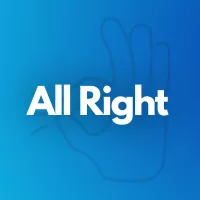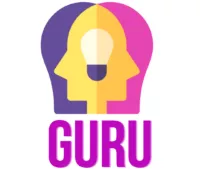Key Difference: The words Alright and All right are commonly used words, and they are similar. We can use any of these words when we accept something. These words refer to the satisfaction or good enough to agree with something or some situation. We can use these words interchangeably. The major difference is that “Alright” is one word and “All right” consists of two words. The word “Alright” is an informal word that is often used in spite of “All right.” Alright is not the accepted spelling of All right, and it is considered to be incorrect. Let’s see the difference between these two words in detail below.
Alright: Are you alright?
All right: I hope she is all right now.
 |  |
Alright:

An informal word used to indicate acknowledgment
Do you know that alright is not an accepted spelling of all right? Alright is an informal word that is always considered to be incorrect. You can use this word to show that you agree with something someone said to you. Let’s see an example to make it clear. “Alright rose! I get it“, In this statement, someone agrees with that rose said. You can use this word when you are chatting with your friends, but it is best to use All right when you are writing a formal letter or Email. When someone asks, “Are you alright?” it means are you OK?.
How Do We Spell the Word Alright?
Phonetics pronunciation of the word Alright is ˈɔːlˈraɪt. And this word sounds like the following audio.
Enunciation:
Syllables are phonological building blocks of words. It divides the words into parts that can help you read words more accurately. Let’s see how to split the word “Alright” using syllables. Learning syllables can also help you to spell words correctly.
- The word “Alright” has two syllables.
- It can be divided as “Al-right.”
Parts of Speech:
The word “Alright” is an adjective. Usually, adjectives are used to describe or modify nouns or pronouns. For example, a beautiful girl, a happy kid, or a quick rabbit. In these examples, the adjective words define the characteristics of the noun. Here is an example of the adjective word alright. There was an accident and the bus driver was heavily injured, but all the passengers were alright. In this statement, they define that passengers are safe and no harm to them by using the adjective alright.
Using “Alright” in sentences:
- Alright, I have got the point.
- Don’t worry. You will be alright.
- Did you sleep alright?
- Is everything alright here?
- Alright, I will try to call her later.
All Right:

Find something acceptable
People have often used the word all right, which is said to be OK. This word refers to accept something. You need to know that All right is a formal English word. When we are satisfied or agreed with others’ point of view about something, at the time we typically said it’s all right. To be more precise, this word is used when there is so much understanding between two persons about their thoughts. So, they acknowledge each person’s perspective and said the word all right. For instance, Jimmy, whatever you decide is all right with me. In this sample sentence, someone agreed with Jimmy’s decision without any question.
How Do We Spell the Word All right?
Phonetics pronunciation of the word All right is ɔːlˈɹaɪt. And this word sounds like the following audio.
Enunciation:
Syllabification refers to the process of division of words into smaller parts. It is commonly known as syllables. With its help, you can easily read and spell the word accurately. Here, you will see how to split the word “All right” by syllables.
- The word “All right” has two syllables.
- It can be divided into “All-right.”
Parts of Speech:
The term “All right” is used either as an adjective or as an adverb. As we said earlier, adjectives are used to describe or modify nouns or pronouns. Adverbs typically express manner, place, time, frequency, degree, level of certainty, etc. Usually, adverbs limit or restrict the meaning of the verbs. The adverb All right means well or OK.
Using “All right” in sentences:
- Thank God, Ronnie is all right.
- Ron was very sick yesterday, but now he is all right again.
- I am all right mom.
- Is it all right if I open the door?
- Do you feel all right?
Compare: Alright Vs All Right
This table will show you the contradiction between the words Alright and All right.
| Alright | All right | |
|---|---|---|
| Definition | Alright is an informal word. It refers to accept or agree with something. | It is a formal word. This word refers to when we are satisfied or agreed with others’ points of view. |
| Synonym | Acceptable, satisfactory, OK, fine, reasonable, suitable, well enough | Acceptable, satisfactory, OK, fine, reasonable, suitable, well enough, tolerable |
| Antonyms | Unsatisfactory, wrong | Unsatisfactory, wrong |
| Parts of Speech | Adjective | Adverb or adjective |
| Type | Informal | Formal |
| Etymology | Old English eallriht (“all-right, just, exactly”) | Old English eallriht (“all-right, just, exactly”) |
| Examples | Jerry, are you feeling alright? Would it be alright to come to visit your place soon? Summer was alright, but she always preferred the winter. Could you read this letter and tell me if it is alright? I thought we played all right. | I’m sorry Rosy. That’s all right. I think it’s all right. Is it all right to park my car here? Once you tell the truth. You will be all right. Don’t worry about me, I will be all right. |
Resources and References:
Resources: Cambridge Dictionary (Alright, All right), Merriam-Webster (Alright, All right), Dictionary.com (Alright, All right)
Reference: Dictionary.Cambridge.org[1], Merriam-Webster.com[2][3], Dictionary.com[4].
